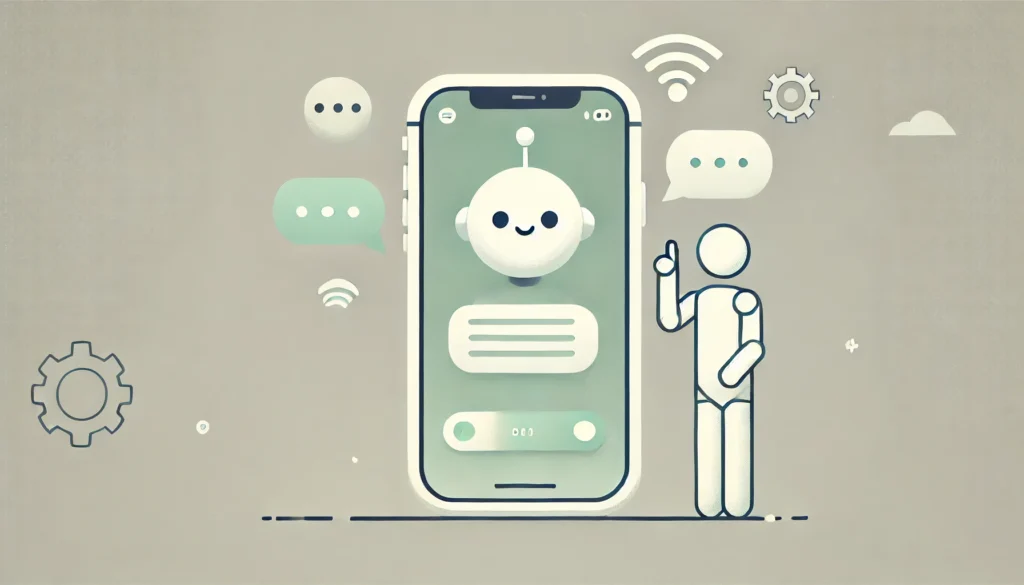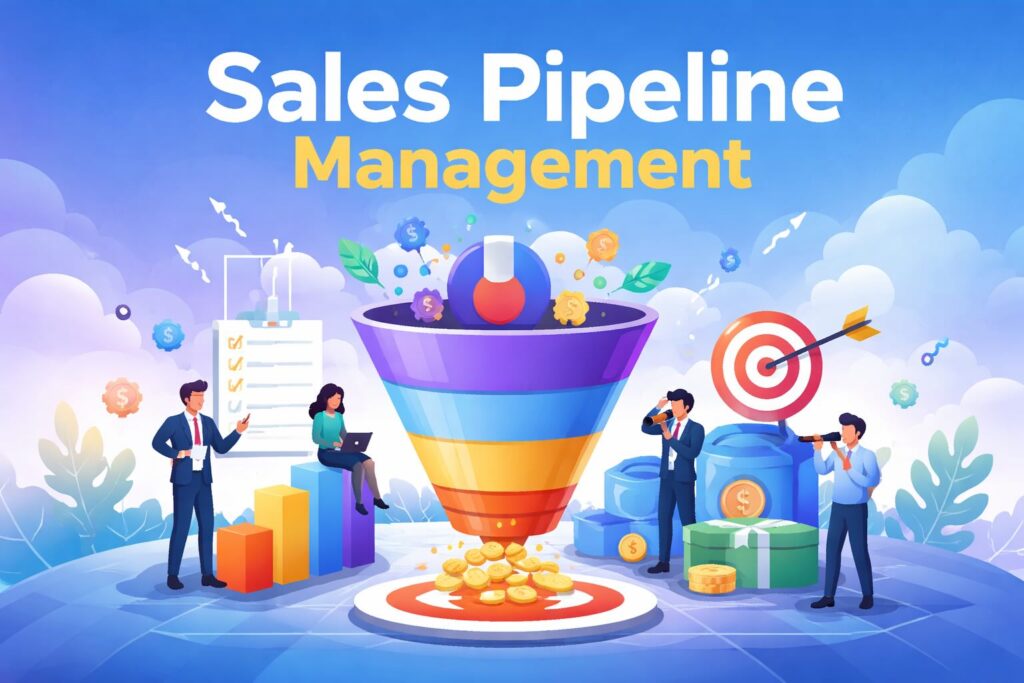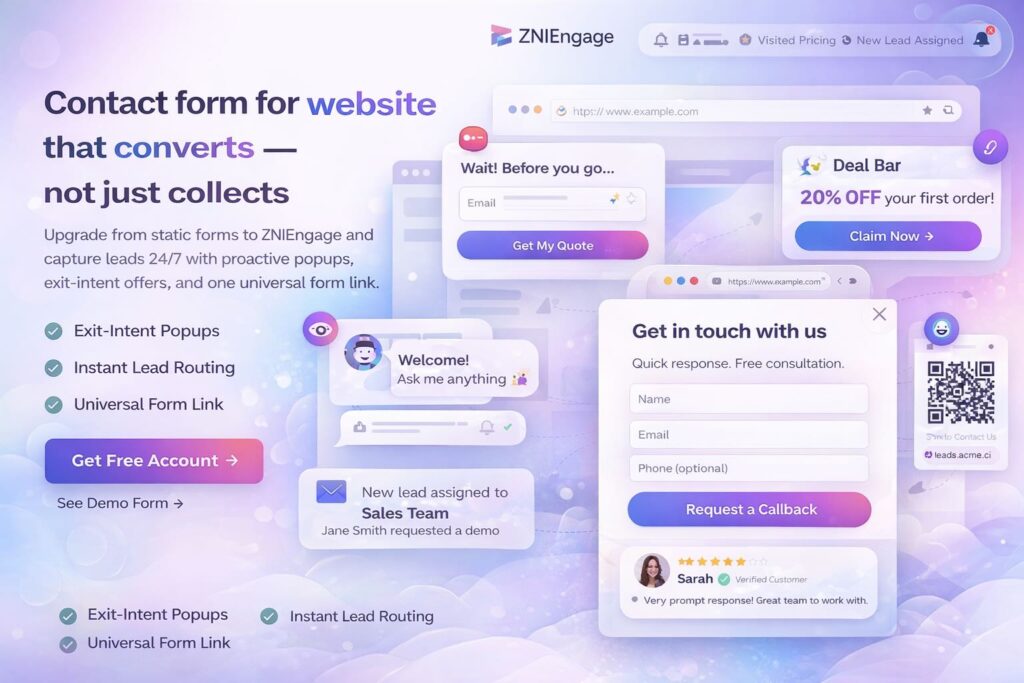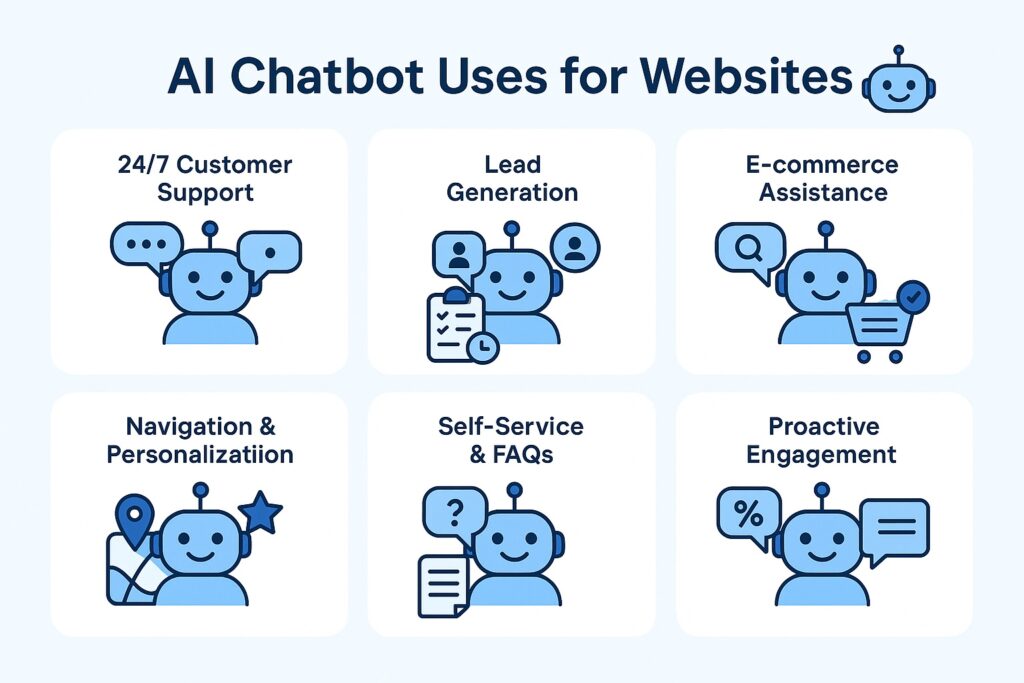
Table of Contents
- Introduction
- The Evolution of Chatbots and Their Importance
- Understanding WhatsApp Chatbots
- AI in WhatsApp Chatbots: Key Benefits and Features
- Integrating AI Chatbots with CRM
- Popular Use Cases of WhatsApp Chatbots
- Choosing the Right WhatsApp Chatbot Software
- Step-by-Step Guide to Creating a WhatsApp Chatbot
- Best Practices for WhatsApp Chatbots
- Case Studies: Success Stories with AI Chatbots on WhatsApp
- Frequently Asked Questions (FAQs)
- Conclusion
1. Introduction
In an era where communication moves at the speed of light, businesses need to keep pace to remain competitive. Whether you are a small startup or a multinational enterprise, you undoubtedly realize the significance of delivering quick and accurate responses to customers. Within this context, chatbots have emerged as powerful tools for enhancing customer interactions, reducing costs, and boosting operational efficiency. Specifically, the increasing popularity of WhatsApp—with over 2 billion monthly active users globally—positions it as a prime platform for deploying advanced AI chatbot solutions.
2. The Evolution of Chatbots and Their Importance
Early Chatbots
Chatbots, in the simplest sense, are computer programs designed to simulate human conversation. The earliest chatbots date back to the 1960s, with the famous example of ELIZA—a rudimentary pattern-matching chatbot that amazed users by generating human-like answers. Over the following decades, chatbots gradually advanced to incorporate more sophisticated AI and natural language processing (NLP) capabilities. These improvements enabled them to understand context, interpret user intent, and deliver more relevant answers.
Modern AI Chatbots
Today, the emergence of machine learning and deep learning models has redefined what chatbots can achieve. AI-powered chatbots can analyze vast amounts of data, learn from past interactions, and adapt their responses for better accuracy. This new generation of chatbots is not limited to websites or specific apps; instead, they can be integrated across multiple channels, including social media platforms, SMS, and, notably, messaging apps like WhatsApp.
Why Chatbots Matter for Businesses
- 24/7 Availability: Modern consumers expect instant responses. Chatbots allow businesses to stay accessible around the clock.
- Cost-Efficiency: Deploying a chatbot reduces the need for large customer service teams, thereby cutting operational costs.
- Scalability: Chatbots can handle thousands of inquiries simultaneously, unlike human support teams that may become overwhelmed during peak periods.
- Enhanced Engagement: Through quick, interactive experiences, chatbots keep customers engaged, increase loyalty, and promote repeat interactions.
Where WhatsApp Fits In
WhatsApp is the world’s most popular messaging platform, surpassing other popular channels like Facebook Messenger. As a result, it has become an ideal vehicle for facilitating direct and immediate communication with customers. The launch of WhatsApp Business in 2018 marked a significant milestone, enabling companies to create official business accounts and offering a robust platform for whatsapp chatbots, automation, and broader business-customer engagement. Here, we start to see references to chatbot on whatsapp business, ai chatbot on whatsapp, and whatsapp chatbot for automation that indicate just how valuable these integrations are.
3. Understanding WhatsApp Chatbots
A WhatsApp chatbot is essentially a chatbot that interacts with users on the WhatsApp platform. By harnessing AI and automation, a WhatsApp chatbot can answer FAQs, initiate sales conversations, guide customers through complex processes, and deliver personalized experiences—without the need for human intervention at every step.
Key Components of a WhatsApp Chatbot
- API Integration: WhatsApp offers a specialized API for business accounts. This gateway is essential for sending and receiving messages programmatically, powering interactions with a whatsapp chatbot software.
- AI and NLP Engine: The intelligence behind the chatbot lies in its AI algorithms and NLP engines. This layer analyzes user messages, identifies intent, and maps the appropriate responses.
- Business Logic: This includes the rules, conditions, and workflows that define how a conversation flows. For instance, if a user is asking about order status, the system might query the CRM or ordering system and retrieve the necessary details.
- Security and Compliance: WhatsApp is highly encrypted, and businesses must comply with local data privacy regulations. A well-structured whatsapp chatbot ai respects these requirements.
Benefits of WhatsApp Chatbots
- Global Reach: With billions of users worldwide, WhatsApp provides a direct line of communication to an extensive audience.
- High Engagement Rates: People typically open WhatsApp messages faster than emails, leading to higher read and response rates.
- Rich Media Support: Chatbots can share images, videos, and documents for enhanced user interaction.
- Personalized Conversations: By integrating with CRMs, chatbots can create more personalized experiences for returning customers.
4. AI in WhatsApp Chatbots: Key Benefits and Features
Enhanced Personalization
One of the most compelling reasons to use an AI chatbot for WhatsApp is the ability to customize conversations at scale. By analyzing user history, preferences, and past behaviors, an AI chatbot with CRM integration can tailor responses to individual users.
For instance, if a returning customer previously purchased running shoes, the whatsapp ai chatbot could send them personalized offers for sportswear or upcoming promotions. This seamless blend of personalization and automation can significantly boost customer satisfaction and conversion rates.
Contextual Understanding
Traditional rule-based chatbots often fail when users deviate from predefined triggers. An ai chatbot on whatsapp, however, uses natural language processing and machine learning to interpret diverse phrasings of user queries. Such an ai powered whatsapp chatbot can maintain context across multiple messages, ensuring fluid dialogue.
Intelligent Routing
When integrated with a customer relationship management system—an ai chatbot crm setup—the chatbot can direct more complex or sensitive issues to the appropriate human agent or department, drastically reducing wait times and improving user experience. By leveraging whatsapp automation chatbot systems, businesses can ensure that routine or low-priority queries are resolved automatically, freeing up human agents to focus on high-priority tasks.
Multi-Language Support
WhatsApp chatbots powered by AI can also handle queries in multiple languages, broadening the scope for global businesses. This level of agility is vital for maintaining a strong brand presence in diverse markets.
5. Integrating AI Chatbots with CRM
Why CRM Integration Matters
Integration with a CRM (Customer Relationship Management) system amplifies the effectiveness of any whatsapp chatbot for business. A CRM stores valuable data about leads, prospects, and existing customers, enabling chatbots to deliver highly personalized experiences.
- 360-Degree Customer View: Having a unified view of customer data ensures consistent messaging and reduces redundancies.
- Better Lead Management: Potential leads can be automatically captured and segmented, streamlining follow-up processes.
- Customized Workflows: By aligning CRM data with chatbot interactions, businesses can create targeted campaigns and re-engagement strategies.
Key Features of AI Chatbot CRM Integrations
- Contact Sync: Automatically import contact data from WhatsApp interactions into the CRM.
- Conversation History: Maintain a record of all user interactions in the CRM for future reference.
- Automated Alerts: If a customer raises a red flag or qualifies as a hot lead, the system can alert the relevant sales or support teams.
Popular CRM Platforms to Consider
Many CRM platforms like ZNICRM, Salesforce, HubSpot, and Zoho offer robust APIs that facilitate direct integration with an ai chatbot with crm. Businesses can leverage these platforms to create end-to-end automation: from the moment a user initiates a WhatsApp conversation, to the point of conversion or ticket closure.
6. Popular Use Cases of WhatsApp Chatbots
1. Customer Support
WhatsApp chatbots for businesses are particularly effective for automated, round-the-clock customer support. Companies can reduce average resolution time by quickly addressing common queries about products, shipping, or account details. With a well-designed chatbot for whatsapp business, you can slash wait times to seconds, ensuring a positive customer experience.
2. E-Commerce and Sales
Online retailers leverage whatsapp chatbot software to guide customers through browsing, ordering, and post-purchase queries. For example, a user can ask for product availability, compare prices, or inquire about return policies—all through a seamless conversation with an ai chatbot for whatsapp.
3. Appointment Scheduling
Businesses in healthcare, beauty, or consulting services can use a whatsapp automated chatbot to offer appointment booking. The chatbot interacts with the user to find an optimal slot, updates the CRM, and confirms the appointment automatically, thereby reducing the hassle for both parties.
4. Lead Generation and Qualification
For B2B and B2C models alike, a whatsapp chatbot for automation can interact with inbound leads in real time, gathering critical data like email addresses, phone numbers, and product interests. Once qualified, leads are pushed into the CRM for personalized follow-up by a sales rep, or further automated sequences.
5. Informational and Marketing Campaigns
Because of WhatsApp’s high engagement rates, chatbots can effectively disseminate important updates or promotional content. A free chatbot for whatsapp can broadcast new product announcements, policy changes, or exclusive discounts to pre-approved contact lists, ensuring maximum visibility.
7. Choosing the Right WhatsApp Chatbot Software
Key Considerations
- Ease of Use: If you lack a dedicated technical team, look for an intuitive, no-code or low-code platform that simplifies bot building.
- Scalability: As your business grows, you need a solution that can handle higher message volumes without crashing.
- Integration Capabilities: Ensure your whatsapp chatbot provider offers native or flexible APIs for integrating with CRMs, ecommerce platforms, or other third-party tools.
- Analytics and Reporting: Detailed conversation logs, sentiment analysis, and performance metrics are key to refining your chatbot’s efficiency.
Popular WhatsApp Chatbot Providers
Several whatsapp chatbot provider options in the market cater to diverse business needs:
- ZNICRM WhatsApp AI Chatbot: Known for providing robust automation features and easy integration with popular CRMs.
- Business WhatsApp Chatbot Solutions: Some providers specialize exclusively in business solutions, offering advanced analytics and compliance frameworks.
- Free Chatbot for WhatsApp Tools: Ideal for small businesses or trials, but often come with limitations in message volume and advanced features.
Custom vs. Off-the-Shelf Solutions
Depending on your budget and technical expertise, you can choose between:
- Custom Development: Offers full control and flexibility, but requires a dedicated development team and longer lead times.
- Off-the-Shelf: Faster to deploy and often cheaper initially, but you might face limitations in terms of customization and ongoing costs.
8. Step-by-Step Guide to Creating a WhatsApp Chatbot
Deploying a whatsapp business ai chatbot involves several steps. While the specifics can vary based on your chosen platform, the general outline remains the same.
Step 1: Obtain WhatsApp Business API Access
To build a chatbot whatsapp business solution, you’ll need access to WhatsApp’s Business API. You can either apply directly through Meta (WhatsApp’s parent company) or use a whatsapp chatbot provider that is a Meta Business Partner to fast-track the process.
Step 2: Choose Your Development Approach
You can build a whatsapp ai chatbot from scratch using popular programming languages (e.g., Python, Node.js), or you can opt for a low-code platform. If you decide to create a custom chatbot, you’ll integrate a library that handles the WhatsApp API’s messaging protocol.
Step 3: Define Conversation Flows and Scripts
Map out the types of queries your chatbot should handle—FAQs, order tracking, appointment scheduling, etc. Next, draft the conversation flows using flowcharts or conversation trees. Be sure to incorporate error-handling routes and fallback responses for unexpected user inputs.
Step 4: Train Your AI Model
If you’re building an ai chatbot on whatsapp, you’ll need to train a machine learning or NLP model. Tools like Dialogflow, IBM Watson, or Microsoft Bot Framework can be integrated for better natural language understanding. Upload sample Q&A data, define entities and intents, and iteratively refine the model.
Step 5: Integrate with CRM and Other Systems
Connect the chatbot to your CRM—this is crucial for leveraging stored customer data and logging new interactions. If needed, integrate with inventory management or scheduling systems to provide real-time updates to customers.
Step 6: Test Rigorously
Before going live, run tests to check for:
- Response Accuracy: Are the AI responses contextually appropriate?
- Load Testing: Can the system handle simultaneous users without latency issues?
- Security Compliance: Ensure that data encryption and privacy rules are adhered to, especially if you handle sensitive information.
Step 7: Launch and Monitor
Once you deploy the whatsapp chatbots, set up monitoring tools to track user interactions, response times, and conversation drop-off points. Collect user feedback to refine conversation flows and update training data.
9. Best Practices for WhatsApp Chatbots
Keep It Human-Centric
Although your bot is powered by AI, it’s crucial to retain a human touch. Personalize greetings, address users by name when possible, and provide a quick path to a live agent if needed.
Transparent Onboarding
When a user first interacts with your chatbot on whatsapp business, clarify its capabilities and limitations. If certain queries require human assistance, set that expectation upfront.
Provide Rich Response Options
Leverage WhatsApp’s support for images, buttons, and quick replies to create engaging interactions. For instance, an ai whatsapp chatbot can display quick reply buttons for frequently asked questions, improving user experience and reducing friction.
Use Conversational Language
Avoid jargons or overly formal language. The core purpose of a chatbot is to replicate a natural conversation. Keep your responses clear, concise, and friendly.
Maintain Data Privacy
Given WhatsApp’s encryption, your data is secure in transit. However, always comply with relevant data protection regulations, and ensure third-party integrations follow best practices in security.
Regularly Update the Bot
Finally, your whatsapp automation chatbot should evolve over time. Update your FAQs, product catalogs, and responses to reflect real-world changes. A stagnant chatbot quickly loses value.
10. Case Studies: Success Stories with AI Chatbots on WhatsApp
Case Study 1: E-Commerce Brand Boosts Sales
Company Profile: A mid-sized online apparel retailer looking to reduce cart abandonment rates.
Solution: They deployed a whatsapp chatbot integrated with their ecommerce platform. This whatsapp chatbots for businesses solution would automatically follow up with customers who added items to their cart but did not complete the checkout process.
Results:
- 20% Decrease in Cart Abandonment: Automated reminders led to higher checkout completions.
- Improved Customer Satisfaction: Users appreciated quick, on-demand support regarding order statuses, returns, and exchange policies.
- Reduced Customer Service Calls: By fielding repetitive inquiries, the chatbot saved the company thousands of dollars in operational costs monthly.
Case Study 2: Healthcare Provider Automates Appointment Scheduling
Company Profile: A multi-location healthcare provider with high appointment traffic.
Solution: The organization implemented an ai chatbot with crm capabilities to let patients self-schedule appointments via WhatsApp. The chatbot also assisted with sending automated reminders.
Results:
- 70% Reduction in Call Volume: The chatbot took over a significant portion of appointment requests, freeing up phone lines for more complex patient issues.
- Better Utilization of Staff: Front-desk staff could focus on in-person patient care.
- Decreased No-Show Rates: Automated appointment reminders resulted in fewer missed appointments.
Case Study 3: Travel Agency Handles Inquiries During Off-Hours
Company Profile: A travel agency operating in multiple time zones, receiving inbound leads at all hours.
Solution: They integrated a business whatsapp chatbot to handle inquiries about travel packages, visa requirements, and flight times. During off-hours, the ai whatsapp chatbot captured leads and scheduled them for follow-up by human agents the next day.
Results:
- Global Audience Engagement: Prospective travelers from different continents could get immediate answers.
- Increased Lead Conversion: Prompt responses fueled a higher lead-to-customer ratio.
- Continuous Service: The agency gained a competitive edge by offering 24/7 query resolution without paying for after-hours staff.
11. Frequently Asked Questions (FAQs)
Q1: Is it difficult to set up a WhatsApp Chatbot?
A: Not necessarily. With modern chatbot software for website and other platforms, even non-technical personnel can create a basic whatsapp chatbot. However, more advanced features may require programming knowledge or professional assistance.
Q2: How secure is a WhatsApp Chatbot?
A: WhatsApp uses end-to-end encryption, so messages between user and application are generally secure. However, be mindful of data storage and handling within your organization. Always comply with relevant regulations like GDPR or HIPAA when using an ai chatbot for whatsapp.
Q3: Can a WhatsApp Chatbot handle multiple languages?
A: Yes. With ai powered whatsapp chatbot solutions that utilize NLP and machine learning, you can offer multilingual support. Simply include the necessary language models or translation services during setup.
Q4: Do I need separate chatbots for WhatsApp and my website?
A: You can build a unified system that leverages the same AI and business logic for both. Many chatbot software for website providers also extend their services to WhatsApp. This way, you can maintain consistent brand messaging across multiple channels.
Q5: How do I train the WhatsApp Chatbot to understand my customers’ queries better?
A: Training involves providing the whatsapp ai chatbots with sample conversation data, identifying intents, and defining entity types. Over time, it’s essential to review conversation logs to adjust and improve the training dataset for higher accuracy.
Q6: Is there a free chatbot for WhatsApp I can try?
A: Some platforms offer a free chatbot for whatsapp plan with limited features or user limits. These can be excellent for small businesses or initial testing, but often you’ll need a paid plan for advanced capabilities like CRM integration or large-scale automation.
Q7: Can a WhatsApp Chatbot replace human agents entirely?
A: While whatsapp chatbots can handle a broad range of queries, complex or sensitive issues may still require human intervention. The best approach is a hybrid model, where chatbots manage routine tasks and escalate critical matters to human representatives.
Q8: What’s the difference between WhatsApp Business App and WhatsApp Business API?
A: The WhatsApp Business App is designed for small businesses, offering features like quick replies and labels. The WhatsApp Business API is intended for medium to large enterprises, allowing them to integrate whatsapp chatbot ai and automation at scale.
12. Conclusion
In today’s fast-paced and customer-centric landscape, businesses can no longer rely solely on traditional channels to connect with their audience. An AI chatbot on WhatsApp stands out as a versatile, scalable, and cost-efficient means of delivering top-notch customer experiences around the clock. By merging the power of AI, automation, and WhatsApp’s global reach, companies can tackle common pain points—from handling basic FAQs to guiding complex purchasing decisions—all while enhancing user satisfaction.
Whether you’re in e-commerce, healthcare, travel, or virtually any other sector, adopting a whatsapp business chatbot can provide a significant competitive edge. The intuitive nature of WhatsApp, combined with the robust capabilities of AI, ensures that even the most resource-limited businesses can streamline operations, reduce costs, and amplify customer engagement. However, success is contingent upon selecting the right whatsapp chatbot software, adequately training your AI models, and continuously monitoring and refining the solution.
As we look forward to an increasingly digital future, the integration of AI chatbot with CRM systems will further deepen the personalization and relevance of each customer interaction. Tools like ZNICRM chatbot and other providers continue to push boundaries, offering feature-rich solutions that cater to businesses of all sizes and across numerous industries. With the potential for advanced analytics, multilingual support, and seamless integrations, the next era of whatsapp ai chatbots is poised to redefine how businesses communicate with their audiences.
If you haven’t already embraced an ai whatsapp chatbot for your operations, now is the time to explore the possibilities. From lead generation and qualification, to post-sale support and loyalty programs, the opportunities to enhance user experiences and maximize ROI are endless. By following best practices—staying human-centric, maintaining data privacy, and continuously evolving your bot’s capabilities—you can ensure that your chatbot for whatsapp delivers genuine value to your customers and, by extension, your bottom line.
In summary, the synergy between WhatsApp, AI, and chatbots is transforming the way businesses engage with customers. Whether you opt for a simple FAQ bot or a fully integrated ai chatbot for whatsapp ecosystem, the ability to deliver efficient, personalized, and 24/7 conversations is undeniably powerful. If you’re looking for a surefire way to future-proof your customer engagement strategies, consider deploying a chatbot for whatsapp business today. The road ahead is brimming with opportunity—just waiting for those willing to invest in the tools and expertise that make innovative, AI-driven communications a reality.




